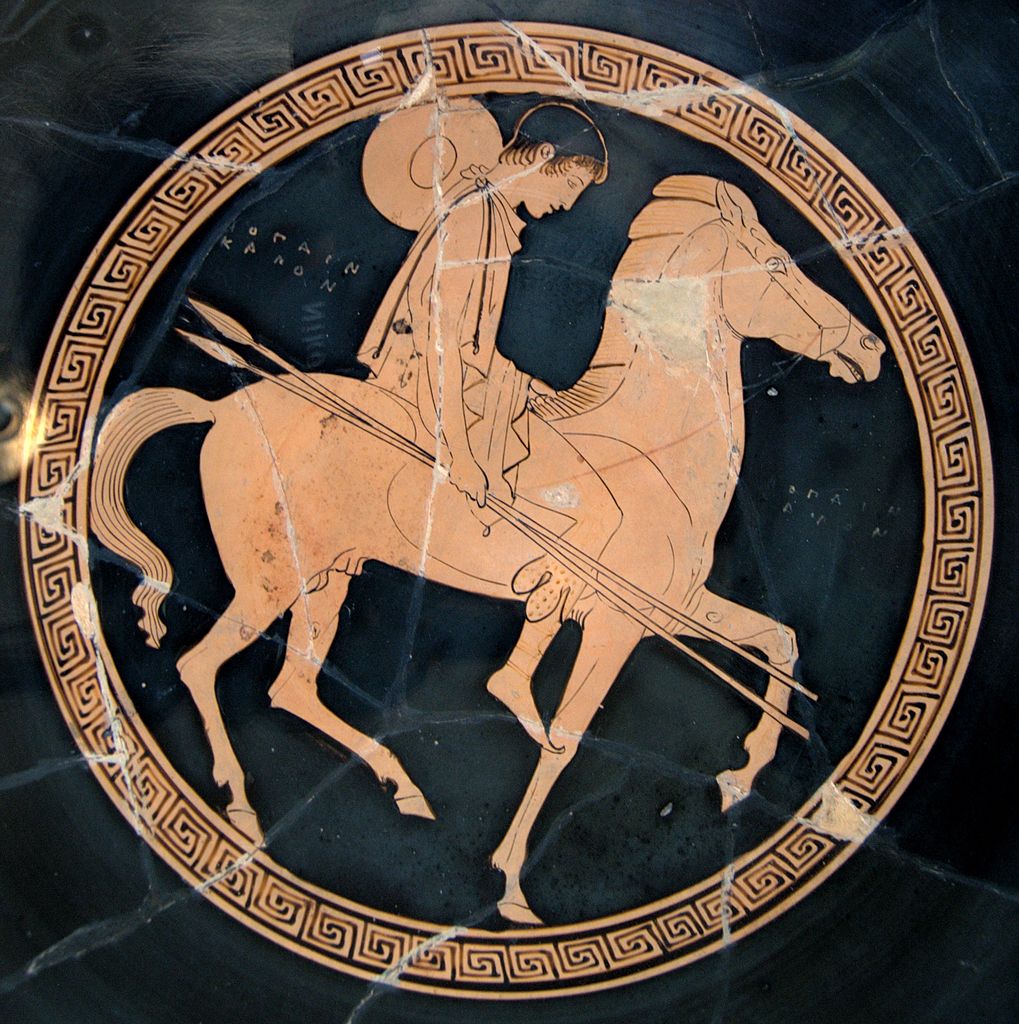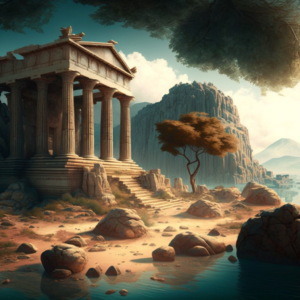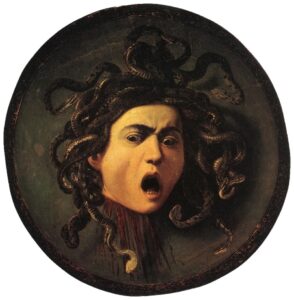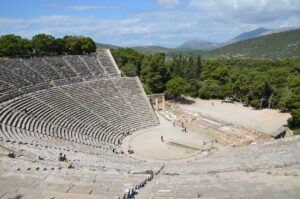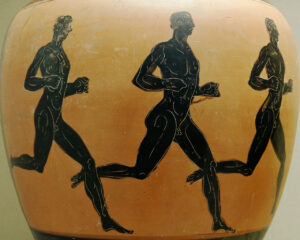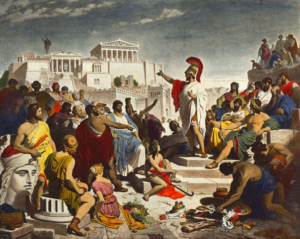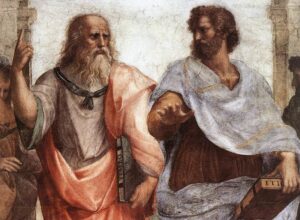1. Ancient Greece was a civilization that existed from around 800 BCE to 30 BCE. It was made up of several city-states, each with their own government and laws.
To understand ancient Greek culture, it’s first important to understand the differing city-states that existed at the time. The city-states of ancient Greece were independent entities, each with their own government, laws, and way of life. They had their own political systems, which varied from democracy to oligarchy, and had their own economic systems and social structures.
The most powerful and influential city-states in ancient Greece were Athens and Sparta. Athens was known for its democratic government and its cultural achievements, such as philosophy, literature, and theater. Sparta, on the other hand, was known for its strong army and militaristic society. Other important city-states of ancient Greece include Corinth, Thebes, and Megara. Each city-state had its own unique characteristics, such as its own gods, heroes, and myths.
2. The ancient Greeks made significant contributions to art, philosophy, science, and politics, which was important to Ancient Greek Culture.
Art was an important part of ancient Greek culture. The ancient Greeks are known for their sculptures, pottery, and architectural achievements. They developed the art of sculpting in marble and bronze, and many of their statues and sculptures are still considered masterpieces today. They also developed a unique style of pottery known as black-figure and red-figure pottery, which is considered one of the most important art forms of ancient Greece.
In terms of philosophy, the ancient Greeks were pioneers in many areas, including logic, ethics, metaphysics, and politics. The philosophers of ancient Greece, such as Socrates, Plato, and Aristotle, laid the foundations for Western philosophy and their ideas continue to influence Western thought today.
Finally, the ancient Greeks made significant contributions in areas such as astronomy, biology, and mathematics. They were the first to propose that the earth was a sphere and that it revolved around the sun. They also made important discoveries in areas such as geometry and trigonometry.
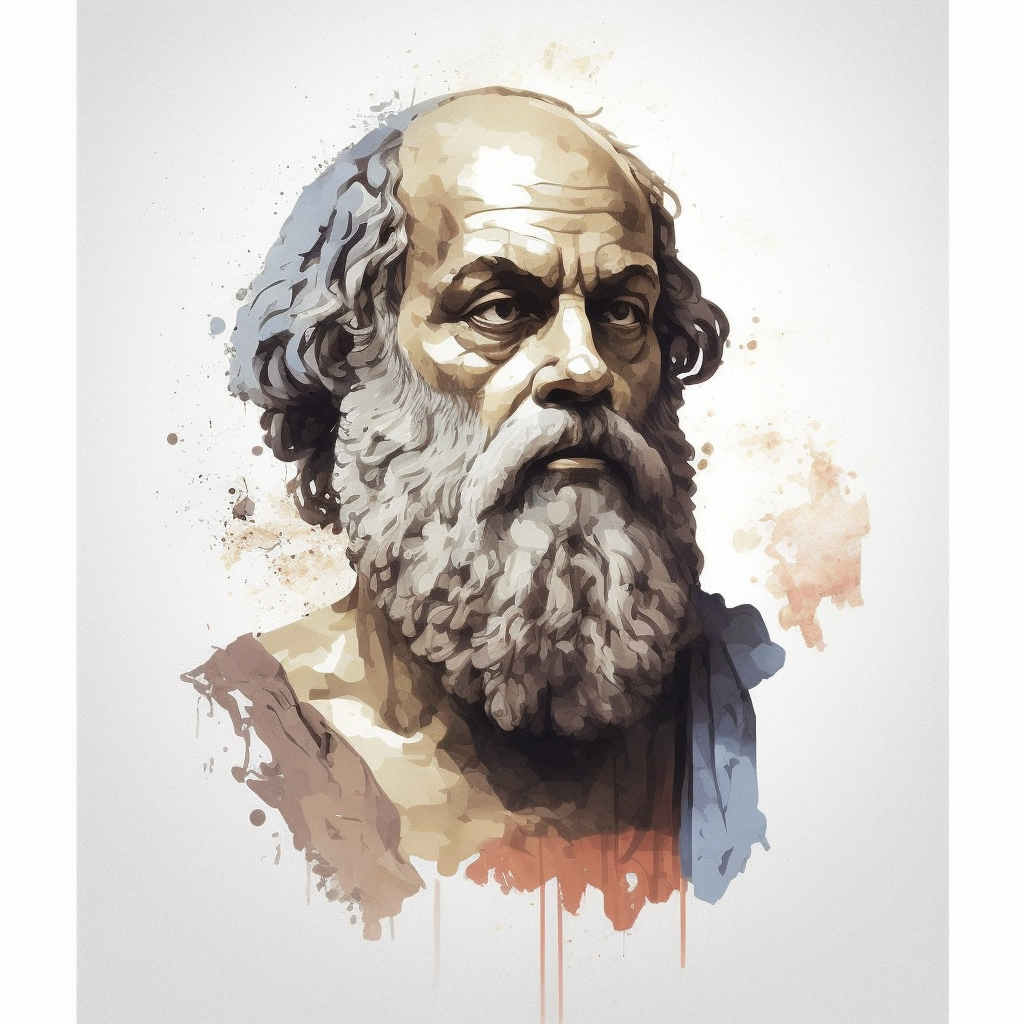
3. The ancient Greeks developed the concept of democracy, which is a system of government where citizens have the power to make decisions.
The word democracy comes from the Greek words “demos” meaning “people” and “kratos” meaning “power” or “rule.” The first known democracy was established in the city-state of Athens around 508 BCE. In this system, all citizens, regardless of class or wealth, were allowed to participate in the assembly and vote on laws and policies.
This was a significant departure from other systems of government at the time, such as monarchy or oligarchy, in which power was held by a small group of individuals. Athenian democracy was not perfect and had its limits, for example, only adult male citizens were allowed to participate, and it excluded women, slaves, and foreigners. However, it was an important step towards modern democracy and has been an inspiration for many political systems throughout history. Regardless, democracy was an important aspect of ancient Greek culture.
4. The ancient Greeks were polytheistic, they believed in multiple gods and goddesses, and they would often make sacrifices and pray to the gods for help.
Ancient Greek culture centered around the different aspects of ancient Greek mythology. The ancient Greeks believed that there was 12 main gods and goddesses, referred to as Olympians. Furthermore, they believed that these gods and goddesses controlled different aspects of life, such as love, wisdom, and war. The gods and goddesses were often depicted in art, literature and in religious rituals.
The ancient Greeks believed that the gods and goddesses lived on Mount Olympus, which was considered the center of the universe. They also believed that the gods and goddesses had the power to influence the lives of mortals and that they could be appeased with sacrifices and offerings. Sacrifices were a common practice in ancient Greece and were typically made to the gods and goddesses as a form of worship.
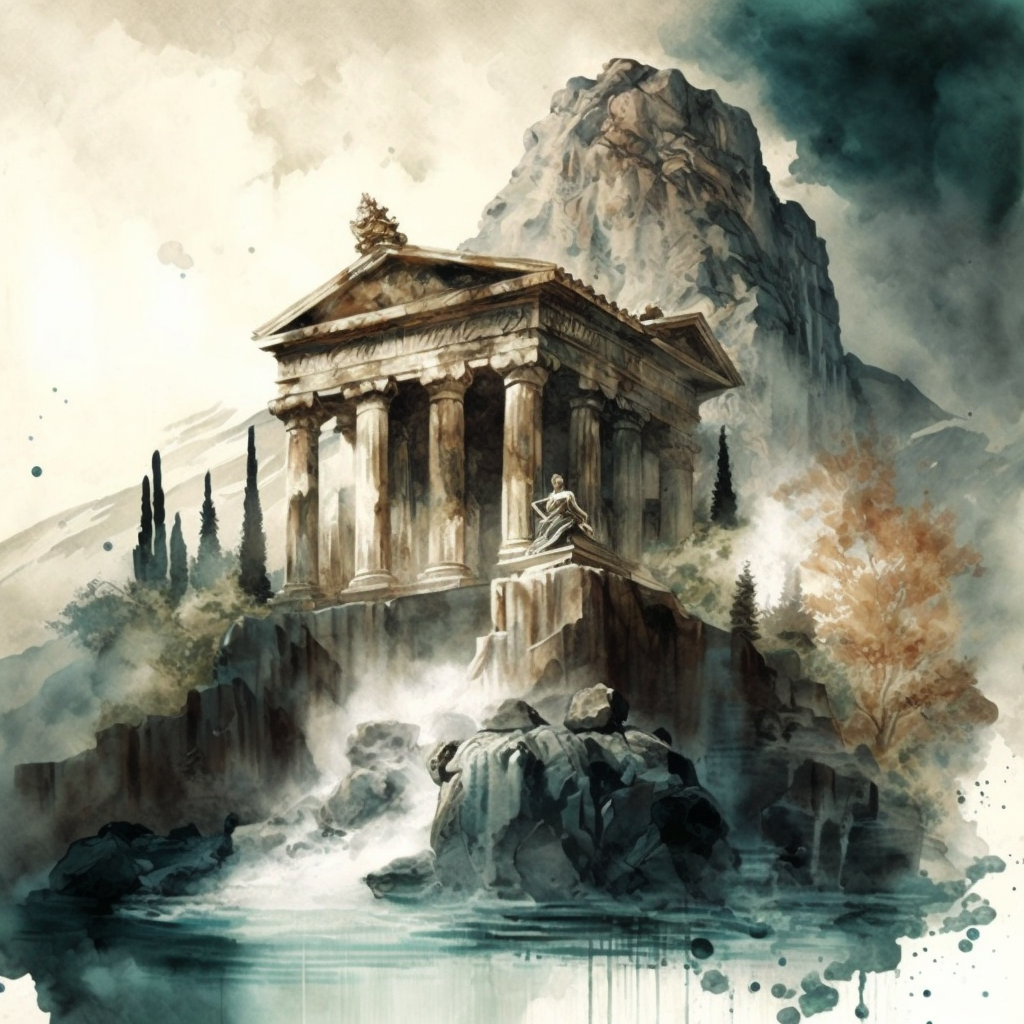
5. Ancient Greek culture was also known for its literature, epic poems and plays.
The most famous works of ancient Greek literature are the epic poems ‘The Iliad’ and ‘The Odyssey’, attributed to Homer. Both of these works were important to ancient Greek culture.
“The Iliad” tells the story of the Trojan War, focusing on the last few weeks of the war and the anger of Achilles, one of the Greek heroes, as well as the anger of the Trojan prince Hector. The poem is considered a masterpiece of ancient literature and is known for its vivid and intense depiction of heroism, warfare, and the human condition.
“The Odyssey” tells the story of the Greek hero Odysseus and his ten-year journey home after the fall of Troy. It is an epic tale of adventure, cunning, and the power of the human spirit. The poem is known for its rich storytelling, and for its exploration of themes such as hospitality, cunning, piety, and the nature of the human experience.
6. The Olympics, one of the most famous sporting events in the world, originated in ancient Greece as a religious festival honoring Zeus.
The ancient Olympic Games were held every four years, from 776 BCE to 393 CE, in Olympia, a city in the western part of the Peloponnese. The ancient Olympic Games were held in honor of Zeus, the king of the gods and the god of sky and thunder. The games were a religious festival and were believed to have been founded by the ancient king of Elis, Iphitos. The ancient Olympic Games were a series of athletic contests that included running, jumping, discus, and javelin throwing, among other events. The games were open to all freeborn male citizens of Greece and were held in the Olympic stadium, which was located in the Sanctuary of Zeus at Olympia.
The ancient Olympic Games were considered as one of the most important religious and cultural events in ancient Greece, as well as a major political event. As such, physical competitions were important to ancient Greek culture. The participants came from all parts of the Greek world and the games were not only a celebration of physical prowess but also an opportunity for the city-states to showcase their wealth, power and culture.
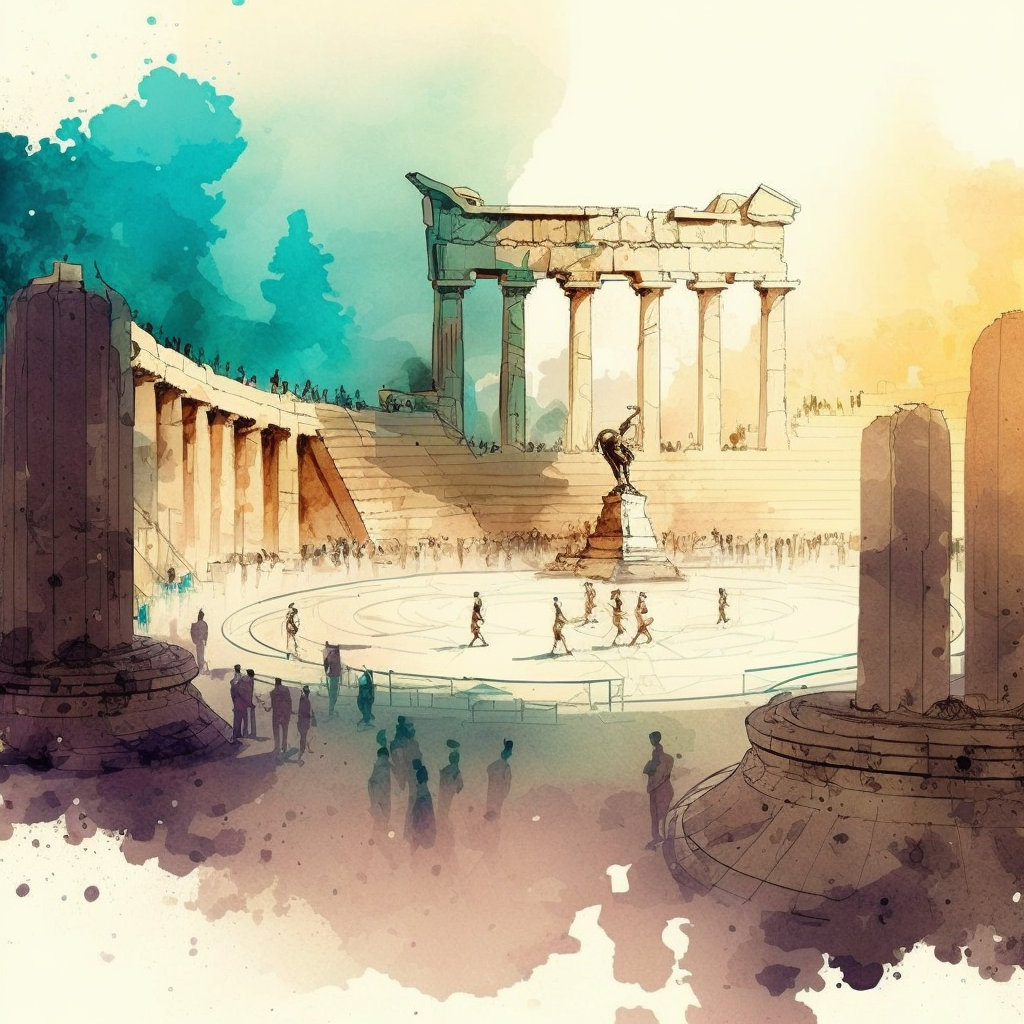
7. Ancient Greek society was divided into three classes: citizens, metics (foreigners living in Greece) and slaves, which impacted ancient Greek culture.
Citizens, also known as “free men,” were native-born men who had full political rights, including the right to vote and hold public office. They were also entitled to certain legal protections and had the right to own property.
Metics were foreigners who lived in Greece but were not citizens. They were allowed to live and work in the city-state, but they did not have full political rights and were not protected by the same laws as citizens. They were often required to pay a special tax and were not allowed to participate in the government or hold public office.
Slaves were people who were owned by citizens and were considered property. They were not considered citizens and did not have any political rights. They were often used as laborers, but they could also work as artisans, merchants, or even educators. Slaves were not considered as human being but only as property.
8. Ancient Greek education was based on the concept of paideia, which aimed to produce well-rounded individuals with a strong moral character.
Paideia is a Greek word which means “education”. In ancient Greece, paideia was a holistic education that aimed to develop the physical, intellectual, and moral capabilities of the individual. It was based on the belief that a well-educated person would be able to contribute to society and live a virtuous life. Paideia was provided by the state and was open to all freeborn male citizens. It was divided into two main categories, primary education and higher education. Primary education focused on basic reading, writing, and arithmetic and was provided by private tutors or in schools. Higher education was provided by philosophers and focused on the study of literature, philosophy, and mathematics.
The primary goal of paideia was to produce individuals who were physically fit, intellectually curious, and morally upright. It focused on the development of the individual’s character, and it placed great emphasis on the study of literature and philosophy, which were considered essential for the development of a strong moral character. All of this was important to the overall understanding of ancient Greek culture.
9. Ancient Greek society placed a strong emphasis on the importance of athletics and physical fitness.
Athletic competitions were an important part of ancient Greek culture and were closely connected to religious festivals and ceremonies. Physical fitness was considered an essential aspect of paideia, the education and development of the individual, and was seen as a means of promoting good health and a strong moral character. Athletic competitions such as the Olympic Games were a central part of ancient Greek culture and were held every four years in Olympia, a city in the western part of the Peloponnese.
Athletics were also a part of military training and were seen as a way to prepare young men for military service. The emphasis on physical fitness and athletics was not limited to men, but women were also expected to be physically fit, even though they were not allowed to participate in most athletic competitions or to attend the Olympic Games.

